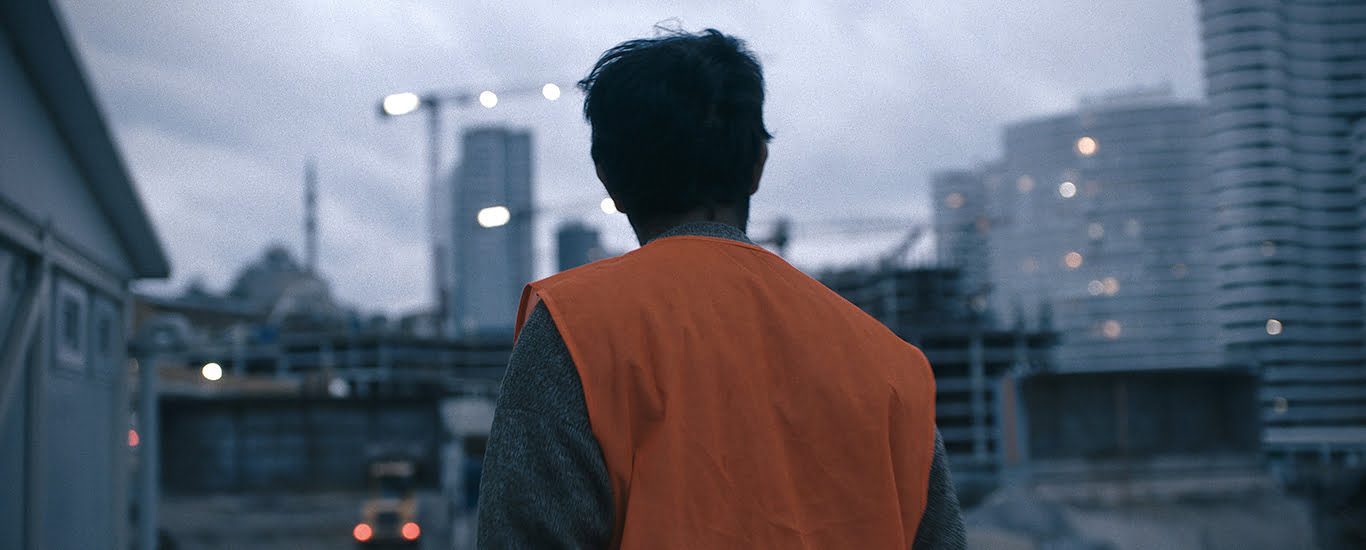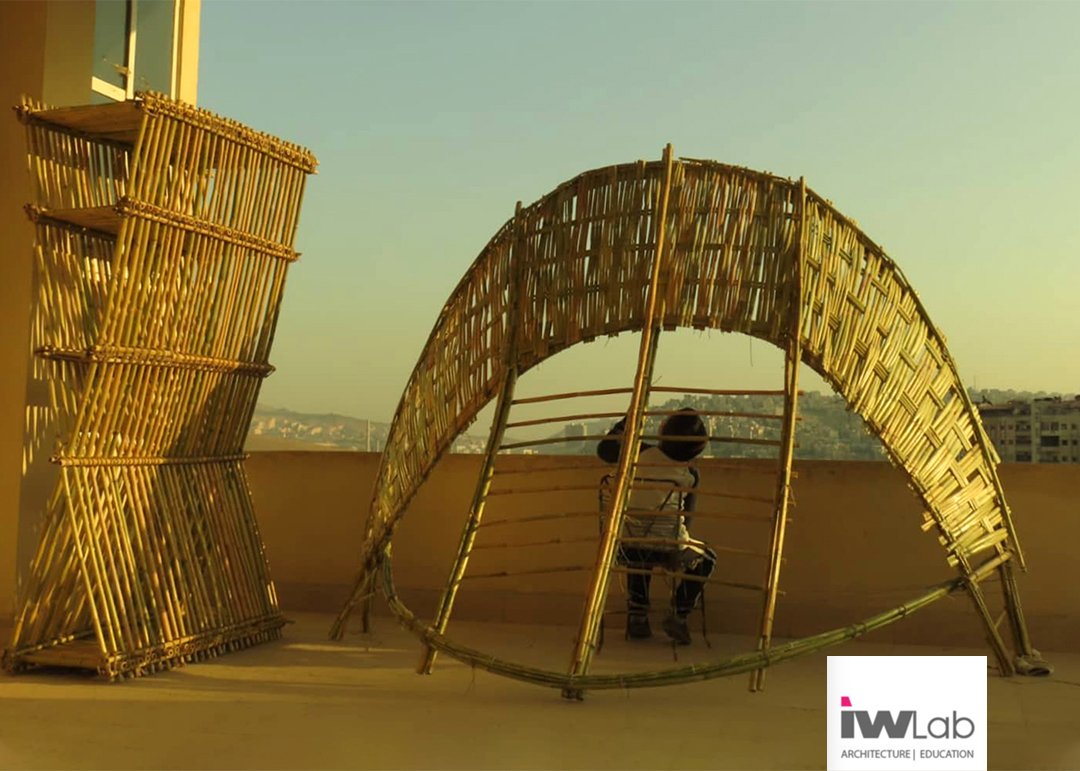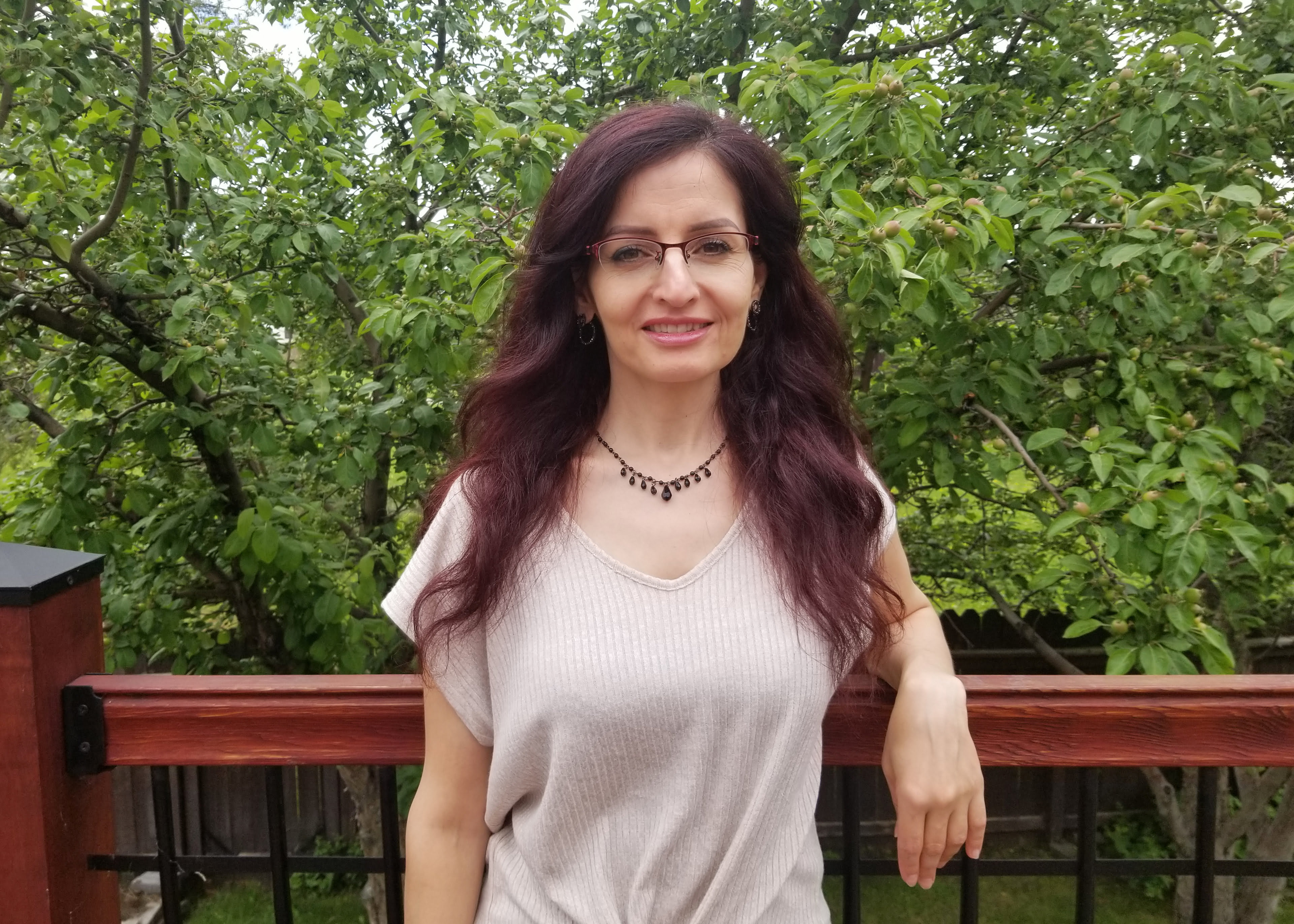‘It’s not the city that’s transforming, it’s us’

We don’t see any refugees other than Ammar.
When you show the situation that Syrians are going through and in a special region as we have a lot of photos because in pre production we were taking a lot of photos. I realise that if I want to show Kamil. And Kamil concentrates to live in a situation we will underline more dramatic. We are going to exploit their situation and make it melodramatic. People feel sorry for the Syrians but when you look at Ammar he is not a stereotypical Syrian with the imagery all those [other] films play on. I wanted to show an honourable, bright, strong and engaged character and concentrate on him rather than exploiting the situation because it is not about that. It is about earning a living, it is about displacement and I did not want to put his situation at the centre of the story. There was one of the few moments in the film that for a moment we stay with Ammar but Kamil leaves the image because ….
It some part so we have a very strong character in the image, the camera prefers to stay with that character and at one particular moment, when Ammar takes him to see his living conditions, then Kamil leaving is the point, he leaves the room and we stay with Ammar’s [viewpoint]. Rather than revealing everything and showing what Kamil looks at, this how it going throw. I want to leave those images with the audience, not to show them, so basically these are issues I can’t milk the extremity of the imagery.
About xenophobia!
When you go to the west xenophobia is not outspoken. People stress it, deliberately talk about it, but in the eastern culture from a distant when you look at the Turkish culture.
I don’t want to generalise, but what we are known for in the east is that we are very hospitable and very welcoming but it is not outspoken we have xenophobia and some kind of kind of distance to Arabic culture. But when you dig deeper you see that it is there and it is very normalised. It is not even that the people talk about it without knowing there is xenophobia. It is the hate that is in so much of what they say and if they don’t realise this, then this is what troubles me.
In the west they know about it, they have a stand on this issue but it is so normalised in Turkey before it is really problematic, it is really strange, it’s so surprising, it’s not limited to a specific class or age group. You can feel it coming from even imaginable people, very intellectual people. They have this strong hate, anger, I don’t know what to call it, but it is there. And in the film, you feel it as a couple of characters talk about it openly, like it’s like a really normal conversation – like, let’s go and beat those guys up, I hate those motherfuckers. What they are saying is just so normalised and very troubling to see. Especially in a culture which has been built by all these other cultures, you can not separate Arab culture, Persian culture, Kurdish culture and Armenian culture, all these cultures are so much in the DNA of our society. At the end of the day, it is troubling.
I think probably there are many levels to it, one is because the vestamination period we want a period ourselves from Middle East, probably there is some kind of roots in this, that’s one layer of it. Another layer is that because of poverty people are struggling for bread right now, they should share it with Syrians and Syrians are looking for another regions so this is another layer on the top of this. I think it is a combination of both these things. Maybe some other levels also.
I’ve never been to Syria before, never.
What is the feedback in Turkey?
The film was released in Turkey in April 2019.
When you look at the film it has a totally different approach. It is very grey, it deals with grey areas. Characters aren’t black or white. No stereotypical police, no stereotypical Syrians, no stereotypical protagonist. Everyone is flesh and blood. They are human beings with good characteristics, their own characteristics, but they have their own conflicts and psychological death so are grey area. I don’t know how people are going to react, some may take a stand and others, maybe they’ll feel, ok, Ali just tell us, who are you with or against?
Probably I will hear this a lot but I think if this film achieves anything, I hope it will make people listen to one another and reach out to communities because when you reach out to communities, they aren’t evil. They are neither against you nor with you. People are just trying to survive.
I immediately connected your film with the Italian (>>>) but this kind of film we watch from Turkey it romanticises things, even poeticises them; it is painted your film is very strong in showing stratification. The very poor people who are left behind. I remember in 2013 I could not believe my eyes when I saw all those massive skyscrapers with 90 million dollars, then you go to poorer places where gentrification and social (…..) is shocking in Istanbul.
…And I think that your film is very sharp in doing that. The main character, he is the only compassionate person and he died. He died of desperation. He is not racist towards Ammar; he just wanted to keep his job. This is the tragedy. How did you build this kind of narrative, because it is very radical. As a filmmaker, you are putting yourself in this kind of line.
I think I owe a lot to the fact that the financing took years and that’s why I could develop the script. I felt that I was ready after the first year of writing. I am so happy that we did not shoot then. I felt ready after the second year. But it took years and I was changing it as I was living it. And growing with it. Also, people were asking me: what are you inspired by? I was thinking that I was changed over there 4 – 5 years. It is actually the story of my change. It is on screen because, as you say, we have this romantic approach towards poverty, towards Syrians. Towards the struggle of the workers. We can romanticise them, even those in the shanty towns, in their homes. They want to create this perfect chanty. It looks like there is nostalgic, other world, poverty, it is not. It is a combination of everything because they are living and changing they are inspired the living of wealth. There come (___) it does not fit at all but it is part of living, bringing things And we should not keep that only show our stand point. For a point I was feeling that I am designing all those reality in different manners only to underline what we think about them. What we think how we romanticize them but I wanted to do something opposite. Leave it growing by itself make it organic.
And I also asked the actors to spend time there and to bring something that’s precious and belongs to them. We found this luxurious apartment and we asked Remziye, what can you bring from this luxurious place? Because you know, those ladies give you something and you bring it back to your home in the shanty town. It does not look right but it is there. I wanted to create this atmosphere of living, of lived spaces, this is one thing.
My thoughts also went to people’s desires, dreams and wounds. When you think deeply about the characters it is just one single layer, they don’t act on one level they are so many psychological traits to each character.
When I wrote the script first of all I wanted to surprise myself so it is not only single level. Ok, how can this character react to this? Don’t have any preconceptions about Kamil, don’t have any have preconceptions about Remziye. So, I left it, changed it overnight, thought about it again, changed it the next week. It was an ongoing process that took it too that level.
Hopefully it will be easier for future scripts but it is such a long process for me. I was also doing field research, going out and meeting those people, talking with them, talking about their dreams, so many levels.

It is a great collaboration, both of them, Kamil and Remziye, Erol and Saadet, they are great. We had so much discussion about the script first to understand, at a deeper level, what I was trying to do. Also, in our first discussion with Saadet, the actress who played Remziye, after she’d read the whole script she said exactly the thing that I wanted to hear. She was reading the first half of the script and saying, ok, it’s another female character described from male perspectives. She read it that way. In the second half, when Remziye takes over, there was my prejudice towards the script and she was such a character and this is what I wanted to achieve actually and after that you are (—-) thinking of the characters intentions. So, is she is a nice character, a naive character? Like we were discussing a lot of characters.coming from different lands, like why is she doing this. We were trying to find motivations for the way she responded.
On the set, when we were rehearsing with the two of them, I left them to it, using the space, thinking that they were acting and we gradually built upon it. I brought some extra layers to the discussions. We revised and revised. We started to shoot and after every take I asked them, how does it feel? And we talked about feelings. How it felt. How I was feeling and how they were feeling, so it is like a combination like sculpting to whole presence and actions and giving it a time I think shaped this through common worlds that put it together, it is not. I did not want to force my ideas on it. It is like sculpting something together.
How long did it take, this whole process you’ve been talking about?
The whole shoot took place over five weeks; we had intensive rehearsals for two weeks. But only for specific scenes. After we got on the same page, I said let’s stop and we’ll continue on the set, don’t spoil it, because when we have already rehearsed we lose something. So we left a lot for the shoot itself and I am happy that everything came together. The chemistry was also very nice.
Are the actors well known or are they newcomers?
Saadet who played Remziye is well known, but the actor who plays Kamil, he works in Germany so he is not well known in Turkey. He works in TV drama but this is his first time playing a lead role. Ammar is Lebanese, also based in Germany, the guy who played the interpreter is Syrian. For Ammar, it was hard to find a Syrian actor of the character’s age and appearance but we found many young Syrians who wanted to act in the opening scene and as the interpreter. I asked for Syrian actors in Germany as I heard many migrated there after the war.
I find the film to be cinema of the city as you focus on this moment in Istanbul. We have a romantic idea of Istanbul. However, many intellectual artists are protesting.
Yes, we’re criticising the policy of the Ministry of Culture about the half industry, it should be a fully industry. The decision making should be transparent but it is not. Thi is the only source of finance. Our )—) changing nothing in the script. This is our script, we don’t write the script for them to like, this is a film, these are my ideas, and it is up to you to finance it or not. I trust my script and my ideas and luckily we got finance. It may be pure luck, maybe because the film is polarising, maybe because the film doesn’t point fingers at anyone.
We got finance which it doesn’t make the whole operation we got fund, I think the process should be improved and become more transparent and more open to all perspectives from different backgrounds.
What is your next project?
It’s a story about a father and son; the father killed his son because the son begged his father to do so as he was living with cancer and the court treats this case as a crime. Hopefully in 2022.




